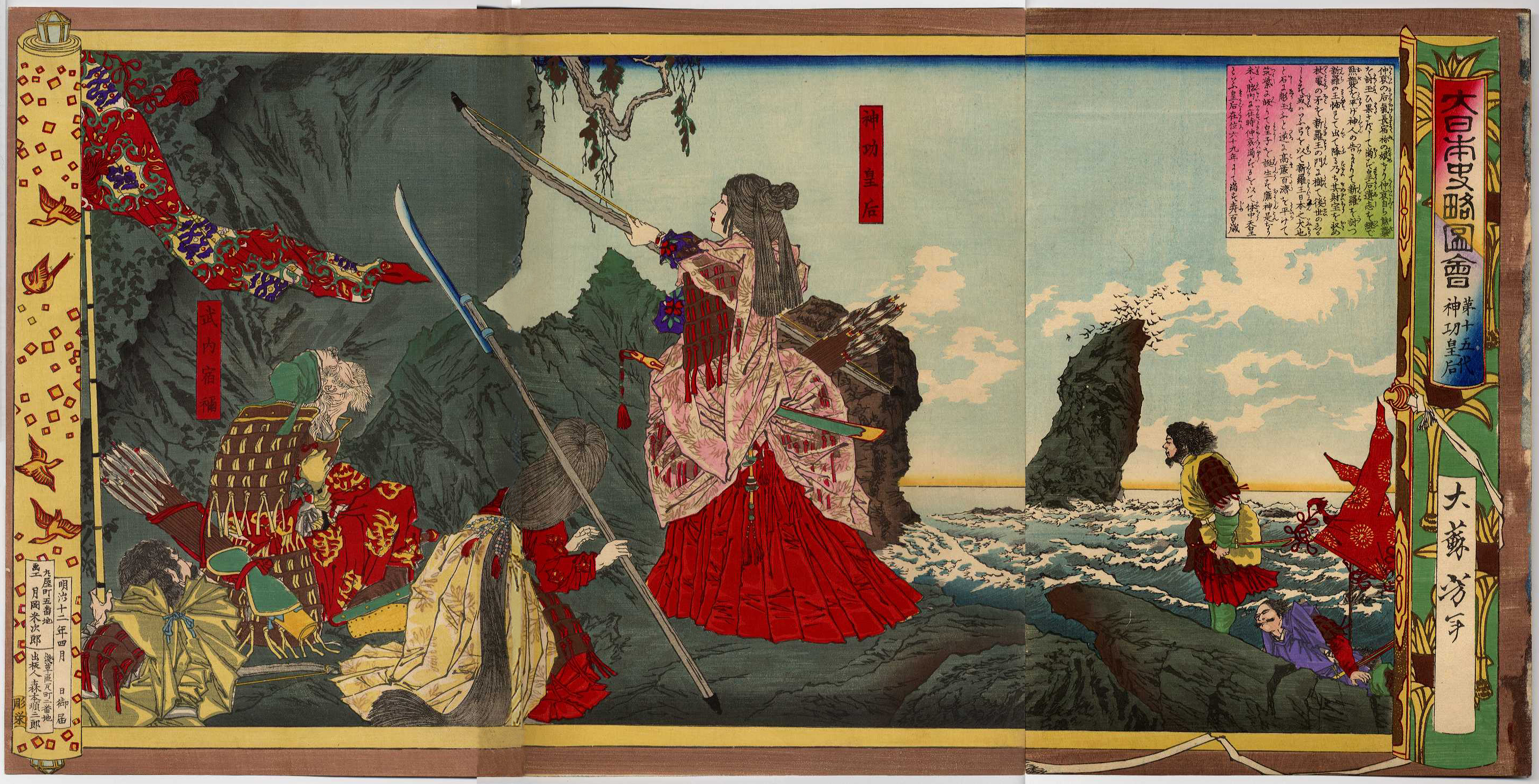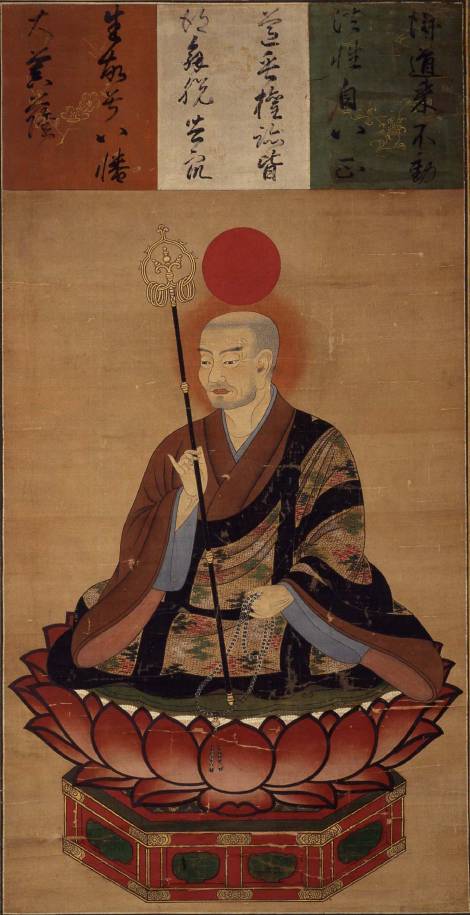Jingū, Empress, consort of Chūai, Emperor of Japan (Legendary character), 170?-269?
Enlarge text Shrink text- Jingū Kōgō hakkutsu, 1987:p. 21, etc. (Okinagatarashi-hime; b. 366?; wife of Chūai Tennō)
- Dai jinmei j.(Jingū Kōgō; 170-269)
- Jinbutsu refarensu j.(Jingū Kōgō)
- Nihon rekishi d.j.(Jingu Kōgō; said to d. 269)
- Dai Nihon hyakka j.(Jingū Kōgō; said to d. 269)
- Daijiten(Jingū Kōgō; d. at age of 100)
- Nihon kokugo d.j.(Jingū Kōgō; Okinagatarashi-hime no Mikoto)
- Britannica online, June 16, 2009(Jingu; variants: Jingo, Okinagatarashi-hime No Mikoto; empress-regent of Japan; b. 170?; d. 269?)
- Americana online, June 16, 2009(Jingo; variant: Jingu Kogo; dowager empress, regent; mother of Ojin, 15th emperor)
- Britannica online, Aug. 22, 2014(Jingū; variants: Jingō, Jingū Kōgō, Okinagatarashi-hime No Mikoto; semi-legendary empress-regent of Japan)
- World biographical information system, Aug. 22, 2014(Jingū Kōgō; another name: Jingō; earlier name: Okinagatarashi Hime; empress regent, wife of 14th emperor of Japan, Chūai)
- Encyclopedia of Japan, Aug. 22, 2014(Jingū, Empres; 神功皇后 = Jingū Kōgō; r; variant: Empress Jingō; legendary nonreigning empress; according to Nihon shoki, ruled as regent for 69 years between the reigns of the legendary emperor Chūai and the emperor Ōjin, her son; modern scholars believe the figure of Jingū is a composite of several ancient shaman-rulers)
Empress Jingū (神功皇后, Jingū-kōgō) was a legendary Japanese empress who ruled as a regent following her husband's death in 200 AD. Both the Kojiki and the Nihon Shoki (collectively known as the Kiki) record events that took place during Jingū's alleged lifetime. Legends say that after seeking revenge on the people who murdered her husband, she then turned her attention to a "promised land." Jingū is thus considered to be a controversial monarch by historians in terms of her alleged invasion of the Korean Peninsula. This was in turn possibly used as justification for imperial expansion during the Meiji period. The records state that Jingū gave birth to a baby boy whom she named Homutawake three years after he was conceived by her late husband. Jingū's reign is conventionally considered to have been from 201 to 269 AD, and was considered to be the 15th Japanese imperial ruler until the Meiji period. Modern historians have come to the conclusion that the name "Jingū" was used by later generations to describe this legendary Empress. It has also been proposed that Jingū actually reigned later than she is attested. While the location of Jingū's grave (if any) is unknown, she is traditionally venerated at a kofun and at a shrine. It is accepted today that Empress Jingū reigned as a regent until her son became Emperor Ōjin upon her death. She was additionally the last de facto ruler of the Yayoi period.
Read more on Wikipedia >
 Personality
Personality










